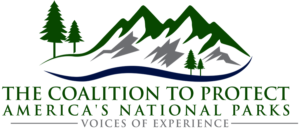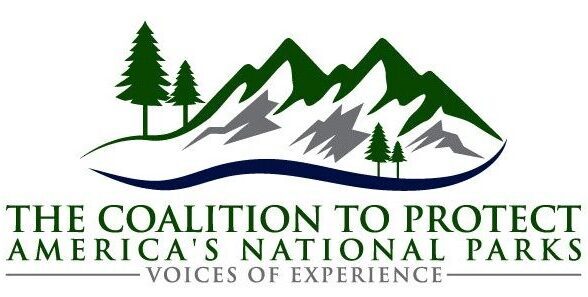
MEMO
To: Interested Parties
Fr: Coalition To Protect America’s National Parks
Re: The Government Is Open. Now what for our National Parks?
Dt: November 2025
The government shutdown crisis may be over, but the crisis at our national parks is not.
In fact, the government shutdown made an already bad situation at national parks and public lands far worse.
Before the shutdown national parks were already pushed to the brink by draconian budget cuts and staff reductions, leaving parks and the people who steward them on an unsustainable and dangerous path. This summer, a New York Times report found that at least 90 parks were facing serious strain in an effort to comply with the Secretarial Order that parks remain open and accessible to the public, despite huge cuts to NPS staff.
And leaving parks open with minimal or no staffing, as the administration chose to do during the shutdown, exacerbated those existing issues from neglected maintenance to limited safety services. Just as we warned would be the case before, and during, the shutdown.
During the shutdown, we saw illegal BASE jumpers at Yosemite, a wildfire that began near an unstaffed campground at Joshua Tree, a stone wall damaged at Gettysburg, and vandalism at Arches. And that is just the resource damage we know about. As more staff start returning to parks, we may learn about even more damage, some that may be irreparable.
The true fallout from the government shutdown will take some time to determine. But we do know of some problems already. Including:
Lost revenue: During the shutdown, the National Park Service (NPS) lost vital fee revenue as visitors were turned away or entered unstaffed gates. Those visitor fees help fund essential maintenance and visitor services, filling the gap left by chronically underfunded congressional appropriations. Projects previously approved and funded through the Federal Lands Recreation Enhancement Act (FLREA) may now be in jeopardy—because those funds were spent just to keep parks minimally open during the shutdown. This means shovel-ready efforts to improve trails, repair roads, or restore historic buildings may now be indefinitely delayed.
Damage: Across the National Park System, rangers, scientists, and maintenance crews will now begin the daunting task of assessing what has been damaged or delayed during weeks without oversight. The full impacts to park resources—wildlife, vegetation, cultural sites, and infrastructure—remain unknown. Trash and vandalism made headlines during the closure, but the potential, subtler effects, like unmonitored erosion, potential degradation of historic structures, interruption to early detection and rapid response to exotic and invasive species invasions, or uncollected data, could take months or even years to measure.
Disruption of Scientific Research: Long-term research and restoration projects—many of which depend on consistent data collection—were likely disrupted. Studies on species migration, habitat use, wildfire recovery, and climate change cannot simply pick up where they left off. The scientific integrity of these efforts may have been compromised, and the full impact may never be fully understood.
Staff gutted by DOGE and the threat of RIFs: Prior to the shutdown, the National Park Service workforce had been gutted, losing nearly 25% of its staff since the beginning of the year. And it has been widely reported that more RIFs are planned. While the deal passed by Congress may pause these planned RIFs until early next year, the threat, and uncertainty, remains and is having devastating impacts.
It is crystal clear the danger for the National Park System is not over because the shutdown is. Congress must protect national parks, and the programs and offices that support their work, into the future by passing a budget that fully funds and fully staffs the National Park Service.
Our national parks are treasured by all Americans and should be protected for everyone, rather than being used as pawns in Washington’s political games.
About the Coalition
The Coalition to Protect America’s National Parks is a nonpartisan, nonprofit organization made up of over 4,700 members, all of whom are current, former, and retired employees or volunteers of the National Park Service (NPS). Together, they have accumulated over 50,000 years of experience caring for America’s most valuable natural and cultural resources. Our members include former NPS directors, deputy and regional directors, superintendents, park rangers (both law enforcement and interpretive), maintenance and administrative professionals, and many other dedicated career professionals.
For more information, please contact Doug Gordon at do**@***************es.com.
